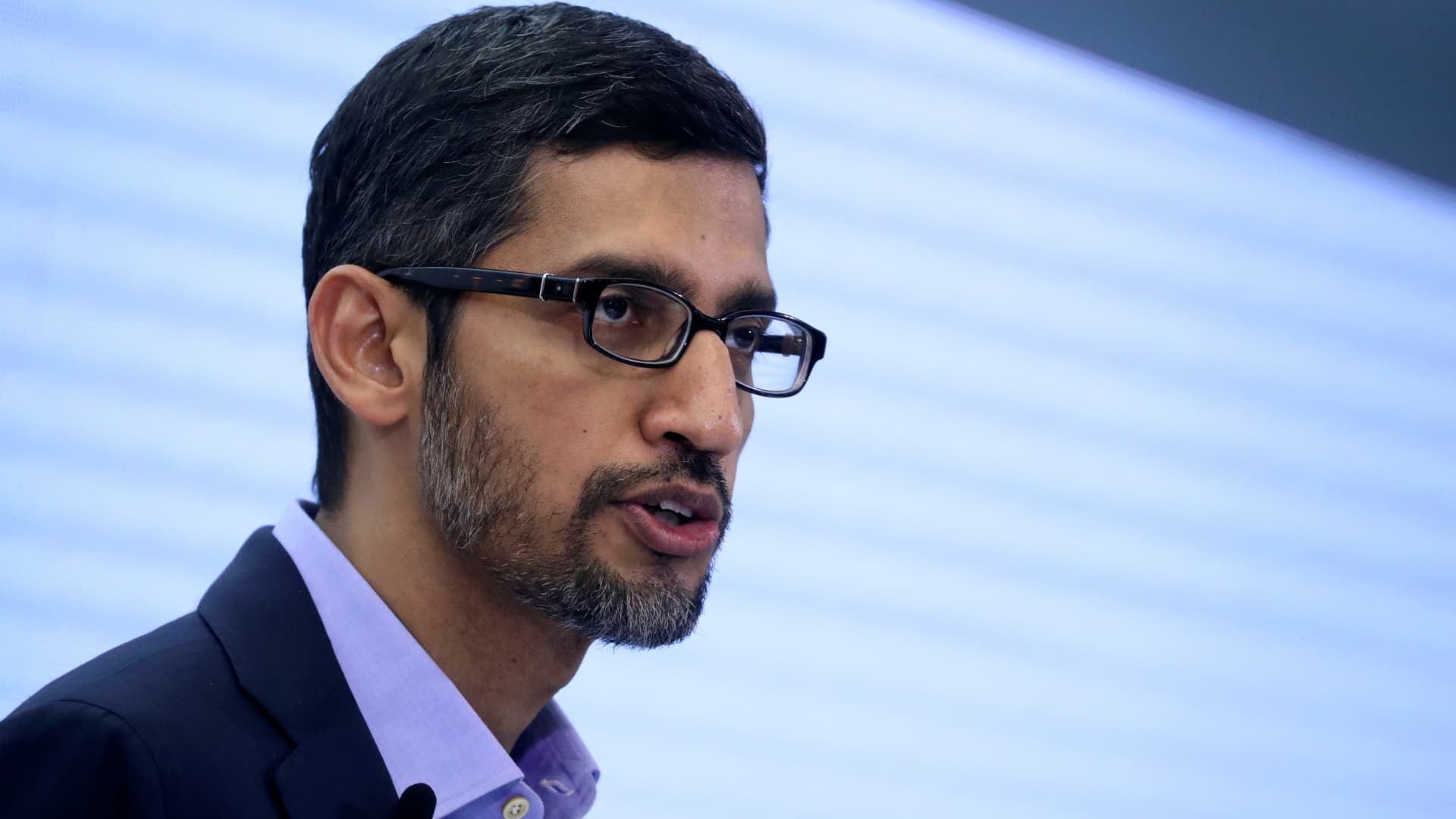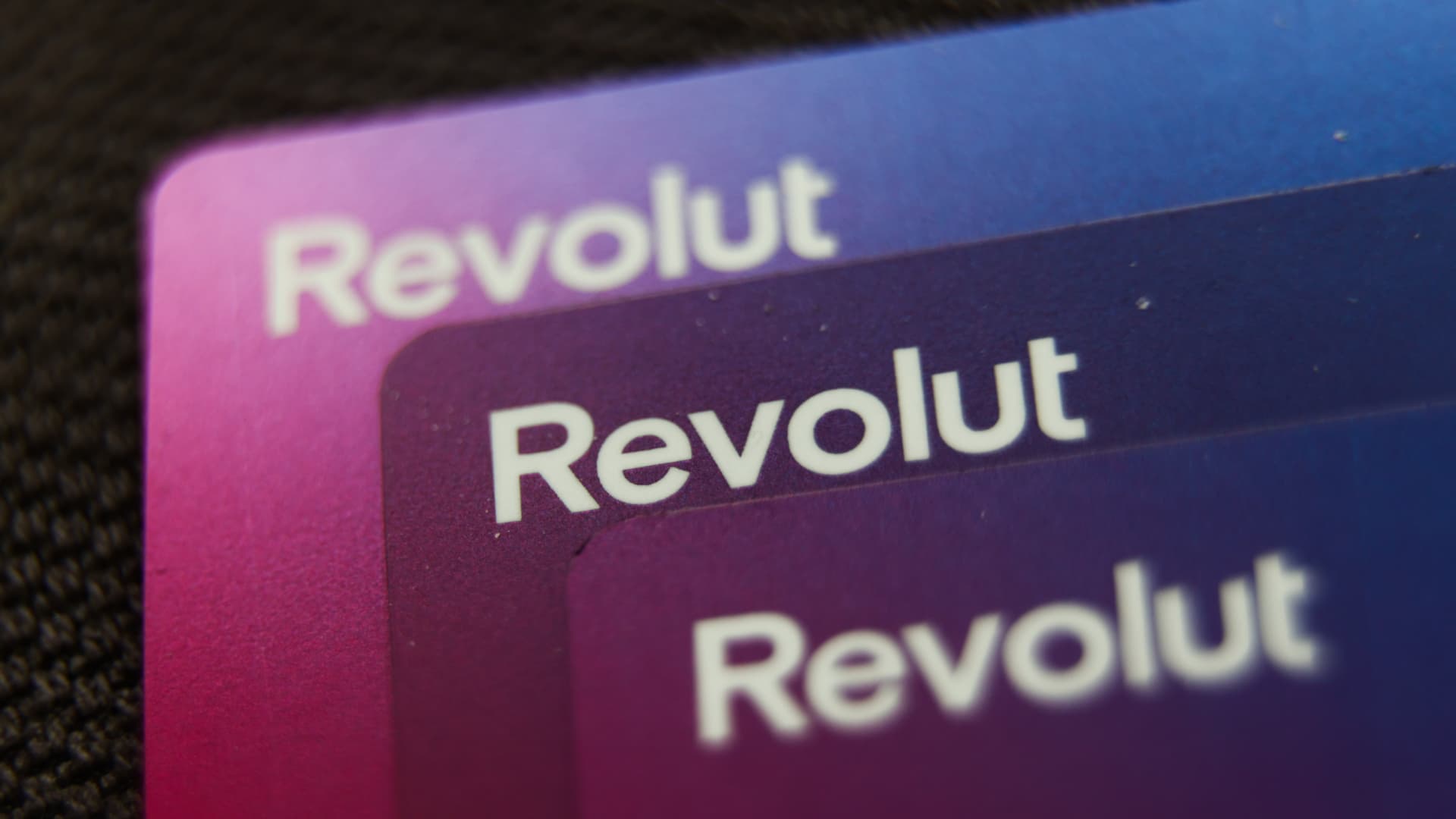Sundar Pichai, CEO of Google and Alphabet, speaks on artificial intelligence during a Bruegel think tank conference in Brussels, Belgium, on Jan. 20, 2020.
Yves Herman | Reuters
Alphabet will report first-quarter earnings after the bell Thursday.
Here is what analysts are expecting.
- Earnings per share: $1.51, according to LSEG.
- Revenue: $78.59 billion, according to LSEG.
- YouTube advertising revenue: $7.72 billion, according to StreetAccount.
- Google Cloud revenue: $9.35 billion, according to StreetAccount.
- Traffic acquisition costs (TAC): $12.74 billion, according to StreetAccount.
Wall Street is expecting Alphabet to report a second straight quarter of year-over-year revenue growth in the low teens. While that marks an acceleration from the prior few quarters, the numbers are in comparison to some of Google’s weakest reports on record.
The generative artificial intelligence boom has forced Google to reckon with changing consumer behavior in terms of how they access information online, and has pushed the company to make sure it doesn’t fall behind OpenAI and Microsoft in developing new technology and features.
Google has been reorganizing to try and stay ahead in the AI arms race as more users move away from traditional internet search.
In February, Google introduced its AI image generator, which the company pulled after users discovered inaccuracies that went viral online. The mishap followed several other product launch mistakes in Google’s effort to get tools and services out the door.
Prabhakar Raghavan, a senior vice president who oversees search at Google, told employees last month that the need to rapidly invest in AI has changed the market and that they need to move faster.
“We’re in a new cost reality,” Raghavan said at an all-hands meeting, the audio of which was obtained by CNBC. With generative AI, the company is “spending a ton more on machines,” he added. Organic growth is slowing and the number of new devices coming into the world “is not what it used to be.”
The first quarter of the year has included “really high highs and low lows,” said Raghavan, who led a reorganization of the search unit, putting company veteran Liz Reid as the head of search, reporting to him.
Online ad rival Meta reported first-quarter results on Wednesday. While revenue and profit topped estimates, the shares tumbled in extended trading on a weaker-than-expected forecast and CEO Mark Zuckerberg’s commitment to a hefty amount of ongoing investment, focused largely on AI.
Google added more generative AI features to search in the quarter and launched Circle to Search, which uses highlighted words or images from a screenshot and transcribes them into a Google search. Gizmodo called it “the best new Android feature in years.”
Cost cuts and layoffs also continued during the quarter. Google Chief Financial Officer Ruth Porat told the company’s finance teams that their groups would see restructuring, including relocations to other countries and job cuts, CNBC reported.
The latest downsizing follows a broader effort by Google to rearrange its workforce and resources to accommodate further investment in new technologies like AI as advertising growth slows. CEO Sundar Pichai told employees in January that more job cuts were likely coming in 2024, though he didn’t specify at the time which teams would be affected.
Google also faced internal strife in the quarter as employees vocally protested the company’s cloud contract with the Israeli government called Project Nimbus. The company ended up firing more than 30 employees it claimed had ties to the internal protests.








